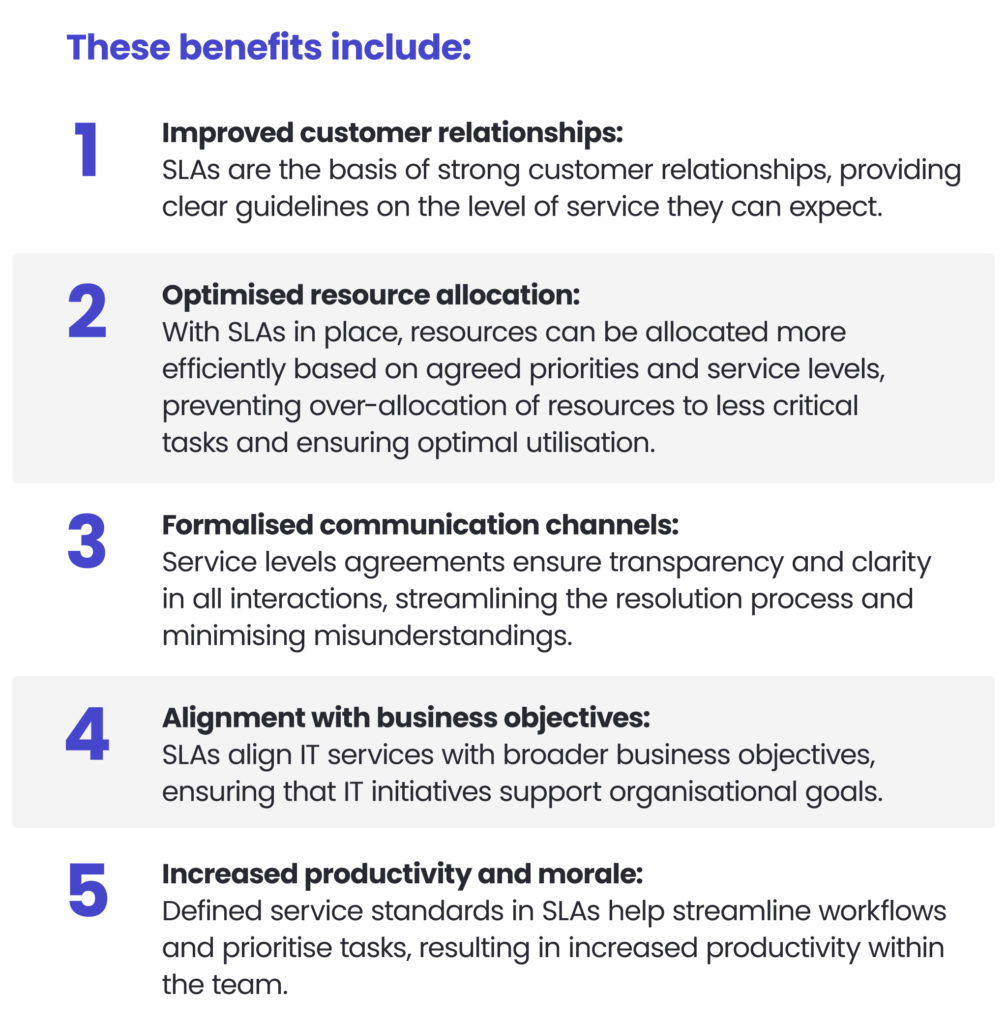Maximising success with IT support and maintenance services
With the increasing influence of the digital era, there is a growing business demand and specific requirements for system maintenance. Information technology has ceased to be the exclusive domain of technology-based companies. In the current business reality, the role of IT has become essential for most companies.
In this article, we explore the essence of IT maintenance support services and explain why they are vital components of business success, from protecting against potential disruptions to improving operational efficiency. The importance of these services resonates across industries and forms the foundation on which companies thrive.
The importance of IT maintenance and support
IT maintenance and support services are the basis of every enterprise’s failure-free, smooth, safe operation and optimised productivity. Basic IT maintenance tasks, such as software updates and hardware checks, are essential but managing these tasks in-house can pose significant risks, including potential system failures and security breaches. When problems arise, organisations can rely on the support team to quickly identify and resolve the issue.
Regular system maintenance ensures data security and up-to-date optimised performance, which is critical to meeting market demands. Monitoring and managing computer systems effectively maximises productivity and ensures the systems work at their best to support the business. With proactive support, an organisation can avoid costly downtime and data breaches by resolving potential problems before they escalate. Data security is the primary motivation for this approach, as the lack of consistent backup procedures carries the risk of data loss, which may have severe consequences for the business, such as damage to reputation, legal problems and financial penalties.
Investing in professional IT support services brings many benefits to businesses. A team of experts handles all technical issues, allowing internal staff to focus on core business issues. Preventive maintenance, involving updating and upgrading existing software and hardware, ensures the system runs optimally and includes creating backup systems, testing, and data recovery services to prevent system downtime. In an era of rapid technological advancement, ongoing maintenance ensures that your business remains compliant with industry standards and new trends, improving operational efficiency and maintaining competitiveness.
IT maintenance and support are also crucial to developing a culture of continuous improvement within organisations. By regularly assessing and optimising IT systems, companies are able to identify areas for improvement and make strategic updates to increase overall efficiency and productivity, which prepares the business to adapt to the dynamic market environment and evolving customer needs.
IT Service Level Agreements (SLAs)
Service Level Agreements are contracts that outline the terms and conditions of service between an IT vendor and their customers, playing a crucial role in building trust.
The SLAs provide a clear understanding of what the customer can expect from the service provider regarding reliability, responsiveness, and overall performance. They lay out specific metrics, such as uptime percentages, response times, and resolution times, which the service provider must adhere to. They are crucial as they establish accountability, set expectations for both parties involved, and ensure that the service supplier delivers on their promises and meets the customer’s needs. Moreover, SLAs help resolve disputes or issues that may arise during the service.
There are many advantages of implementing SLAs that will improve the efficiency and effectiveness of your businesses’ IT operations.

Who should consider outsourcing IT maintenance and support services?
Outsourcing IT maintenance and support services can benefit all organisations, especially those looking to optimise operations, reduce costs and increase efficiency.
Small businesses may need more resources to maintain an in-house IT support team, making a partnership with a managed service provider a cost-effective solution to keep their systems running and secure. Mid-sized enterprises often find outsourcing valuable as it allows them to access specialised knowledge without the overheads of hiring full-time IT staff. In addition, it can provide scalability, allowing these companies to adapt to changing needs as they grow. By delegating regular maintenance tasks like software updates, technical support, extension of support coverage time to 24/7 and network monitoring even larger companies with existing IT departments can free up internal resources to focus on strategic initiatives and innovation.
In particular, organisations operating in industries with stringent compliance requirements, such as healthcare and finance, benefit from working with maintenance and support providers by leveraging their expertise to ensure compliance with regulations and industry standards, reducing the risk of costly fines or non-compliance.
Advantages of collaboration with a managed services provider
Access to specialised expertise and proven processes
Leverage the expertise of skilled professionals with deep knowledge of managing complex IT environments to help you solve various technical challenges more effectively. The support providers often have access to the latest technologies, tools and industry best practices. Take advantage of this and benefit from advanced solutions and methodologies that improve your business’s efficiency, security and performance. Additionally, there is a shift from traditional hardware maintenance to modern IT maintenance, focusing on managing software, data protection, security scans, and maximising productivity.
Cost efficiency
By partnering with maintenance and support specialists, you can manage and save on operational costs associated with hiring and training full-time employees and expenses related to maintaining IT infrastructure and equipment.
Focus on core business activities
Free up internal resources and staff to focus on core business activities and strategic initiatives. Such activities allow the organisation to allocate resources more effectively and prioritise activities that directly contribute to its growth and competitiveness.
Scalability and flexibility
Provide your business greater scalability and flexibility to adapt to changing needs and demands. Outsourced service providers can quickly scale their resources up or down based on the changing needs of the business, ensuring that IT support remains aligned with business objectives.
Support and availability
Many IT support providers offer round-the-clock support and availability, ensuring businesses can access assistance whenever needed. This continuous support helps minimise downtime and ensures the uninterrupted operation of critical IT systems and services.
Risk mitigation and security
A report in 2023 showed that 32% of UK firms had experienced at least one cyber-attack. Cybercriminals are becoming increasingly sophisticated, and businesses need to ensure security maintenance. Hire support specialists to ensure you have robust risk mitigation strategies and security settings to provide data protection and compliance and minimise vulnerability to cyber threats.
Service Level Agreements and performance metrics
Outsourcing those services involves formal SLAs and performance metrics, providing organisations with clear service quality and accountability benchmarks.
The most common services we cover at Spyrosoft
Incident management – efficient handling and resolution of incidents during software usage, focusing on minimising disruption to operations and restoring regular service as quickly as possible
Problem management – identifying and addressing the root causes of recurring problems to prevent their recurrence in the future, thereby improving the stability and reliability of the software.
Security management – implementing and managing security measures to protect the software from potential threats and vulnerabilities, ensuring data confidentiality, integrity and availability.
Change management – managing changes to the solution environment in a controlled and systematic manner, ensuring that changes are implemented smoothly with minimal disruption to ongoing operations.
Configuration management -maintaining and updating software configurations per changing business requirements, ensuring that software remains adaptable and responsive to evolving needs.
Patch management – regularly applying patches and updates to software components to address security vulnerabilities, bugs, and other issues, ensuring the software remains secure and functional.
Capacity management – monitoring and managing resources to ensure that the software environment has sufficient capacity to meet current and future requirements, preventing performance bottlenecks and providing optimal performance.
Check our IT support and maintenance services!
Find out moreOur focus extends beyond development to include critical aspects of software operations. We prioritise performance monitoring and optimisation, 24/7 incident response, backup and disaster recovery. Continuous improvement drives process refinement, deployment support minimises disruption, and cost monitoring ensures efficient resource allocation. Through this approach, we deliver robust software operations support that is tailored to your evolving needs.
Discover successful maintenance and support case study
Cloud infrastructure cost reduction for a financial services company
One of our clients, a financial services company, approached us because they wanted to reduce their cloud infrastructure costs while retaining system operation.
The main objective of this project was to dramatically reduce the company’s cloud infrastructure costs compared to the initial monthly outlay, and the solution needed to be adaptable over the long term to meet the company’s evolving business needs.
Our process began with a comprehensive assessment of the existing setup. Through collaborative workshops, we identified areas ripe for improvement and worked with the client to develop a cost-saving strategy that wouldn’t compromise the quality of products and services. Implementing these tactics culminated in an impressive 68% reduction in the company’s cloud infrastructure costs, exceeding the project objectives. Monthly spending dropped from $18,000 to $5,700, resulting in a significant savings per month.
As a result of this project, the company experienced remarkable benefits, including reduced cloud costs, optimised resource utilisation, increased cost predictability and simplified infrastructure management. These achievements demonstrate the value of cloud optimisation in delivering significant financial benefits while maintaining application functionality.
Conclusion
Investing in IT support and maintenance is critical for maximising organisational productivity and efficiency. By entrusting the management and maintenance of your IT infrastructure to skilled professionals, you can ensure smooth operations, minimise downtime and mitigate potential security risks. These services address immediate technical issues and offer proactive solutions to prevent future complications. Integrating robust IT support and maintenance into your business strategy frees your team to focus on core tasks, encourages innovation and cultivates a competitive edge in today’s digital environment.
If you want to assess your company’s needs and find the perfect solution for your business objectives, learn more about our flexible approach to managed services or contact our maintenance expert directly by filling out the form below!
About the author
Contact us




